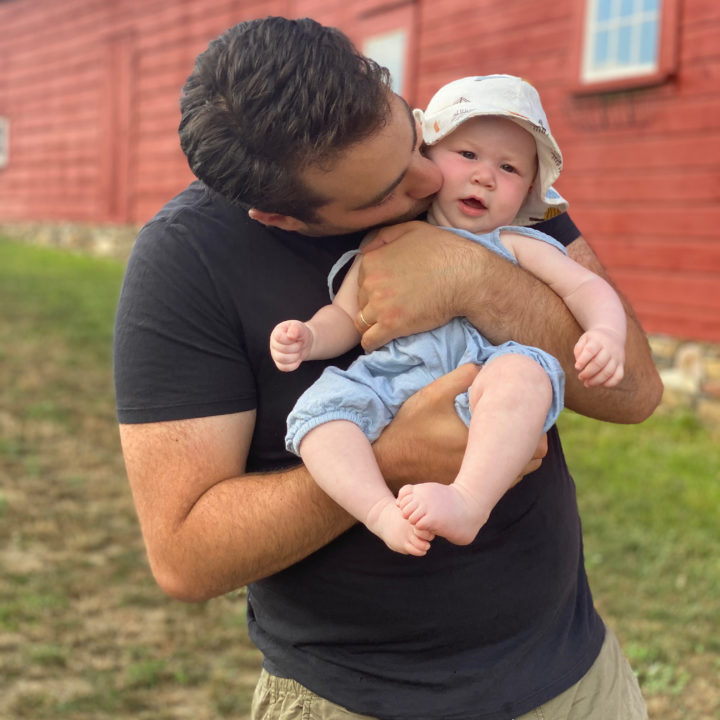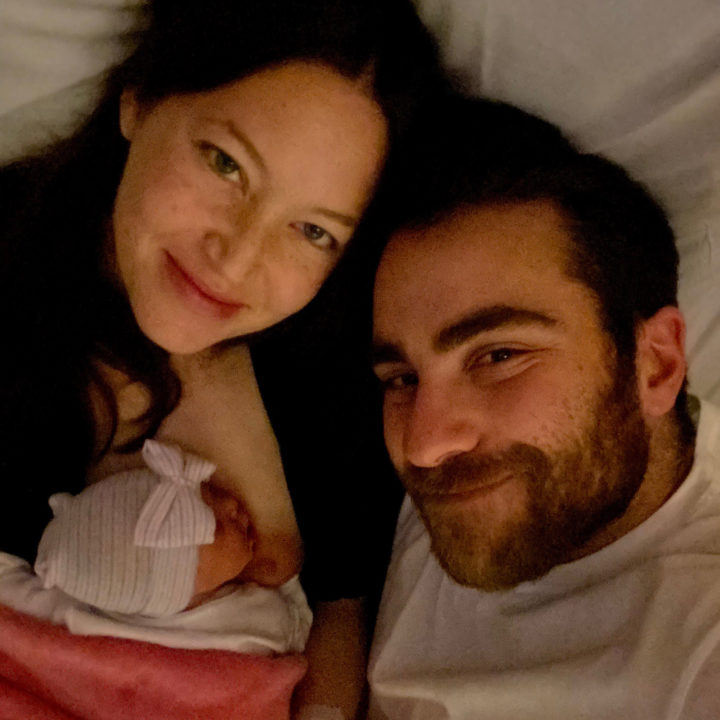In fall of 2017, I was catching up with a friend and former colleague, when he shared with me an idea for us to start a direct to consumer baby brand together. As an entrepreneur, I am most excited about ideas that hit close to home and so this one seemed perfect. My wife and I had just started “trying” and it was easy to dream of building a company and developing products for my child and my family. From there, my co-founder, Greg, and I began Lalo.
Six months later, we had the prototype of Lalo’s first product, a stroller. Began the branding process, planned photo shoots, considered a product roadmap, interviewed potential employees, and so much more. The business was coming together, but my wife and I were falling apart. Lalo was being born but we still weren’t pregnant and we were starting to think it may never happen.
My wife was incredibly driven to find solutions for our “unexplained infertility.” After a year of “trying,” she started seeing doctors, participating in therapeutic experiences and altering all of her routines. Nothing helped. So now it was my turn. In the middle of the entrepreneurial grind, I was in and out of specialist’s offices, doing acupuncture, taking maca extract, and following countless other protocols to give us a better shot.
This wasn’t easy. How could I come home and talk about my work building a baby brand when my wife’s pain over not having a child was overwhelming? And how could I go out into the world and talk about being inspired by the dream of parenthood when my family wasn’t growing at all?
How could I come home and talk about my work building a baby brand when my wife’s pain over not having a child was overwhelming?
As we started to fundraise, investors knocked Greg and me for not being parents. The topic came up in almost every meeting. Finally, I cracked. I will never forget sitting across from a slick haired investor in a swank Manhattan conference room (he’s moved to Miami now, bon voyage!) and being turned down on the spot because we weren’t parents. I looked him straight in the eyes and said, “If biology was on my side, I’d be a dad by now.”
That was the moment I realized it was important not to keep this inside, but instead to share openly that my wife and I were struggling with infertility and that the experience was… normal. In fact, 1 in 8 couples struggle with infertility.
What’s not normal, however, is that most guys don’t feel comfortable talking about infertility. Males contribute to 40% of infertility cases, and this number is growing. In the last 4 decades, male sperm count has decreased almost 60%!

Photos courtesy of Michael Wieder

Our journey was exhausting and lasted almost two years. We had an incredible doctor who was truly with us every step of the way. Because our infertility was “unexplained,” we went through the normal course of procedures. First up was IUI, which in layman’s terms, is basically trying to get your swimmers right to the finish line to give them a head start. We tried this 6 times, but no luck. Next up was IVF, but hope was certainly at an all-time low despite our doctor assuring us we had a great protocol and good chances of success. As a partner, I felt the need to always be “strong” and hold it together while we were on this rollercoaster together.
I’ll never forget injecting my wife with hormones every day to get her ready for her egg retrieval, which is the first step in the process. We finally had our first bit of good news, after the retrieval and fertilization, we had 10 healthy embryos! And then we were on to the transfer process. The entire two week wait after the transfer was one big roller coaster ride of emotions. So much so, that after our first transfer, my wife took multiple early pregnancy tests to soften any potential let down. Sure enough, no luck on the first try. And again, no luck on our second transfer.
That’s when we went down a rabbit hole of Google, trying to diagnose ourselves with something other than “Unexplained Infertility.” I do not recommend that to anyone going through the same thing. What we did do was seek a second opinion with a new doctor. We got a bit of good news and bad news during that meeting. The good news: our second doctor told us he would do the exact same thing as our current doctor and he highly respects our doctor. The bad news: we still didn’t have a baby. It was incredibly difficult, but we stayed the course. Our doctor was sure we were stuck with bad luck and he felt confident we would reach our desired outcome. We still have 8 embryos, we were young, healthy, and fortunate to be able to afford continued treatment. And with that, we went for our third and ultimately successful transfer that brought us our beautiful daughter, Jemma.
During our journey, my wife built an amazing community of women going through similar experiences. They supported each other through the loss and trauma. But support groups for husbands are almost nonexistent and emotional outlets for men struggling with infertility are still highly taboo. I found myself wondering, “who do I talk to about this?,” “who would understand this side of the journey?,” “is there anyone I could get advice from?”
To help and make sure we got through it together, we sought out a couple’s therapist. This was immensely helpful in acting like a team throughout the entire process. It instilled faith that we had each other’s back and ultimately, is a huge reason we never gave up. This whole journey also personally helped me grow in so many ways—it made me more empathetic, truly want to listen more and work to uncover and understand my own feelings too.
In 2020, my baby was born, but I’m not done talking about infertility. Often when I admire my child sitting in her Lalo high chair, I feel proud to have founded a brand focused on making life easier for parents, but I also know that there is so much work to be done in making the process of getting to parenthood easier too. I hope that by sharing our journey with infertility, it encourages others to talk about it more and makes couples going through the same thing feel a little less alone.

